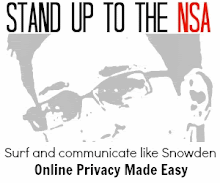 Kevin Samson
Kevin Samson
Activist Post
New York City has become the epicenter of a massive apparatus of citizen surveillance, harassment, and control. It’s a place rife with biometrics, a city-wide camera system supplying real-time data to law enforcement, and a militarized physical presence that has turned the city into an armed encampment.
New York, in fact, is the testing ground for the implementation of military-level counterterrorism operations on American soil. According to a 60 Minutes interview with Commissioner Ray Kelly, he commands a force larger than the FBI, consisting of 35,000 uniformed officers and 15,000 civilian employees. New York’s surveillance city – aka Ring of Steel – has no rival in the realm of Big Brother worship. But so far this is mostly confined to the center.
However, in outlying districts, the surveillance society is yet to be imposed full force. The NYPD is now asking for businesses to cooperate in helping to make that happen.
Citing a rise in violent crime in the 32nd Precint, Harlem, Commander Rodney Harrison is proposing a cooperation with local businesses dubbed “Grid Search.” The (disarmed) residents seem to be all for it:
Many nearby residents said it was a splendid idea.
“You’ve got a lot of these gang members out here attacking people for no reason,” said one neighbor, Dwayne. “They need to just put a lot of cameras up in storefronts to lower the crime rate.”
However, the (also disarmed) business owners aren’t embracing the idea as enthusiastically:
But some business owners said they fear retaliation. They also have questions about who controls the video once a crime is captured.
This privacy concern is one being echoed by civil liberties advocates:
The New York Civil Liberties Union has also expressed concerns that the cameras could be used to spy on residents with no probably (sic) cause, according to a New York Daily News report.
 The residents of the 32nd Precinct are being faced with a familiar refrain in a modern society that is increasingly looking for high-tech solutions to age-old problems: trading liberty for a bit of security … with the hope that additional abuses don’t result. However, as we have seen within the larger context of giving the power of blanket surveillance, one needs to be careful what is wished for.
The residents of the 32nd Precinct are being faced with a familiar refrain in a modern society that is increasingly looking for high-tech solutions to age-old problems: trading liberty for a bit of security … with the hope that additional abuses don’t result. However, as we have seen within the larger context of giving the power of blanket surveillance, one needs to be careful what is wished for.
The rising police state is not only a physical threat, with Americans being 8 times more likely to be killed by a cop than a terrorist, but the pervasive surveillance has led Americans to become increasingly distrustful of one another. DHS programs like “See Something, Say Something” inculcate a snitch culture and a feeling of living in a Threatscape, which New York is now preying upon. It’s a disturbing social trend which was highlighted in a recent Associated Press poll:
These days, only one-third of Americans say most people can be trusted. Half felt that way in 1972, when the General Social Survey first asked the question.
Forty years later, a record high of nearly two-thirds say “you can’t be too careful” in dealing with people.
An AP-GfK poll conducted last month found that Americans are suspicious of each other in everyday encounters. Less than one-third expressed a lot of trust in clerks who swipe their credit cards, drivers on the road, or people they meet when traveling.
“I’m leery of everybody,” said Bart Murawski, 27, of Albany, N.Y. “Caution is always a factor.”
This is the divide-and-conquer strategy of the surveillance-industrial state manifesting itself and spreading across the country. The less people trust one another, the greater chance that problem-reaction-solution can be an effective tool for would-be social engineers.
As noted in the A.P. article, this (misdirected) distrust actually increases corruption and insular behavior at all levels . . . and often it is not based on facts.
Distrust, on the other hand, seems to encourage corruption. At the least, it diverts energy to counting change, drawing up 100-page legal contracts and building gated communities.
Even the rancor and gridlock in politics might stem from the effects of an increasingly distrustful citizenry, said April K. Clark, a Purdue University political scientist and public opinion researcher.
“It’s like the rules of the game,” Clark said. “When trust is low, the way we react and behave with each other becomes less civil.”
[…]
Crime rates fell in the 1990s and 2000s, and still Americans grew less trusting. Many social scientists blame 24-hour news coverage of distant violence for skewing people’s perceptions of crime.
If one wishes to see the true less-than-civil effects on a population subjected to zero constitutional rights, constant surveillance, suspicion, and snitch cooperation with law enforcement, just visit any prison. It’s a tiny example of the larger open-air prison that the streets of America continue to become. But, of course, it’s infinitely worse to willingly give away one’s freedom before being legally remanded to the lock-up.
Source:
http://newyork.cbslocal.com/2013/11/30/nypd-to-businesses-turn-security-cameras-toward-streets/
Recently by Kevin Samson:


Be the first to comment on "NYPD Wants Stores to Point Security Cameras Toward Streets"